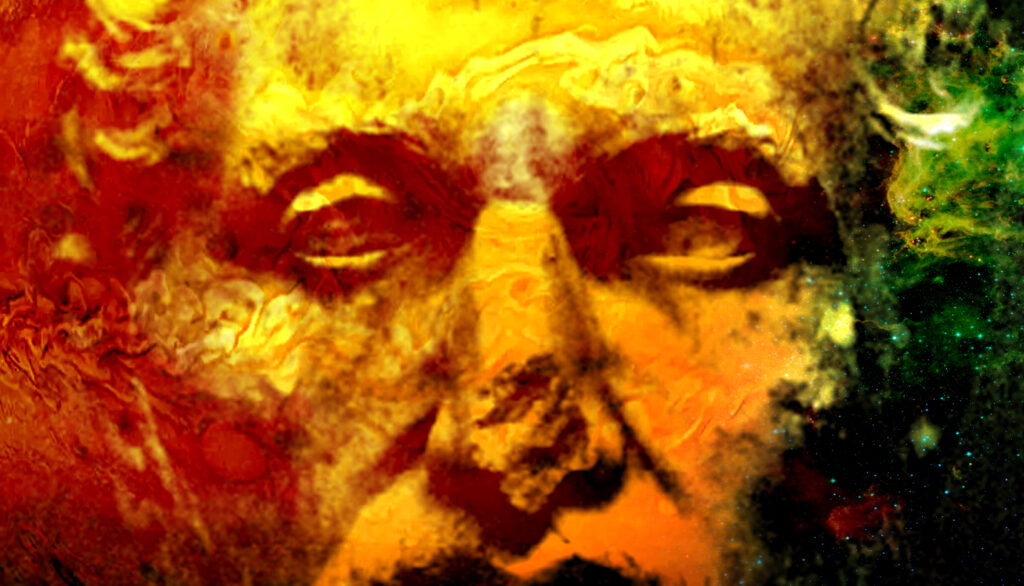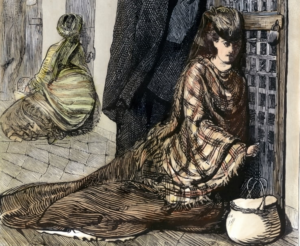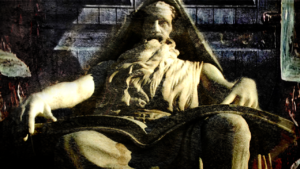The Life of Plotinus

Plotinus was a Greek Neoplatonist born and raised in Lycopolis, Egypt, in 205 AD. While he grew up in a small town in the Nile delta, he later studied philosophy in the great city of Alexandria, under the lapsed Christian philosopher Ammonius. After this education Plotinus joined the Persian expedition of Roman emperor Gordian III (243), hoping to learn first-hand about the philosophies of Persia and India. The expedition ended badly, however, when Gordian was killed in Mesopotamia (Iraq) either in battle or by his own soldiers. Plotinus went on to settle in Rome.
Distraught over the obvious state of decline of the Roman world he was born into, he ambitiously embarked on a spiritual revival of classical Hellenic philosophy.
And this he very nearly achieved.
Indeed, one might argue, his work is still in progress. Being chiefly inspired by Plato, the philosophical movement Plotinus founded came to be known as Neoplatonism.
Plotinus was a master of the philosophy of the Greek tradition, which spanned the seven centuries from Thales to the origins of Christendom. To many he is considered the superior Platonist even to Plato himself, although chronologically speaking it is irrational to make hindsight claims. As Hypatia says: “He who influences the thought of his times influences all the times that follow. He has made his impression of eternity. “ Therefore a Platonist can never truly dethrone Plato.
Contrary to the quirky modern (neoNietzschean) belief that Plato is contra (or the liberal opposite) to pre-Socratic or archaic traditional society, Plotinus saw in the core of this teaching a traditional and reason-based spirituality which could unite the wisdom of Plato with Aristotle, Pythagoras, and Parmenides. A condensing of the core of the Hellenic tradition which was only strengthened by the methods of Socrates, not threatened.
Plotinus was 49 before he even began writing his ideas (defying industrialism-apologists who believe everyone before the 19th century died at the age of 26). His great works were edited posthumously (by his student Porphyry) into fifty-four books called the Enneads. Although as a pagan philosopher he is not often directly mentioned as an important Christian thinker, Plotinus’ works heavily influenced the Catholic theology that emerged at the end of the Roman Empire and the subsequent Middle ages.
It was during the reign of the Roman Emperor Gallienus that Plotinus’ ideas became extremely influential throughout the Empire, and it seemed for a time that he might succeed in his plans to re-invigorate the declining civilization. Emperor Gallienus, over friendly games of chess with the philosopher, agreed to let Plotinus build a second city near Rome, based on Plato’s Republic, to be called Platonopolis (seven hundred years after Plato’s death).
It was to be Rome’s ‘Alexandria’, a center for philosophical revival. Sadly this polis did not come to pass.
“Plotinus pointed out that such a project would not only bring honor to the wise but would confer immortality upon the name of the emperor, lasting dignity upon the whole of the Roman Empire. Galienus came to favor the project as the noblest experiment in time. But the Roman Senate viewed the matter with suspicion and alarm. To them it would be a serious misfortune for the aristocracy of wealth to be challenged by the aristocracy of learning!–the philosophers’ city might finally overthrow the Empire. Always, philosophers had been especially troublesome to the smug, and Rome was in the advanced state of smugness that immediately preceded the complete collapse of the entire Empire. So Galenius had to discover that emperors were not all-powerful; he was quietly informed by representatives of powerful and aristocratic families that if he continued to entertain seriously the dream of a philosopher’s city it would be necessary to find as his successor a ruler with a more practical turn of mind. Plotinus and the emperor continued to play chess and conversationally build philosophic cities in the privacy of the royal apartments, and Rome continued on its headlong flight toward oblivion.”
– Manly P. Hall
Plotinus believed that worldly fortune is not the master of human happiness, and he was one of the first philosophers to introduce the idea that eudaimonia (happiness) is attainable only within consciousness. To Plotinus real happiness depends on the metaphysical authenticity found in the contemplation of Reason.
“For man, and especially the Proficient, is not the Couplement of Soul and body: the proof is that man can be disengaged from the body and disdain its nominal goods.” (Enneads I.4.14)
“The perfect life” involves a man who commands reason and contemplation. (Enneads I.4.4)
“… The Proficient’s will is set always and only inward.” (Enneads I.4.11)
In the year 270 Plotinus died, in the second year of the reign of Emperor Claudius II. He was 66 years old. According to the account of Eustochius, who served Plotinus in his final years, his last words were: “Try to raise the divine in yourselves to the divine in the all.”
Eustochius says that as his master spoke a snake slithered under his bed, then slipped out through a hole in the wall at the precise moment that Plotinus passed away.











